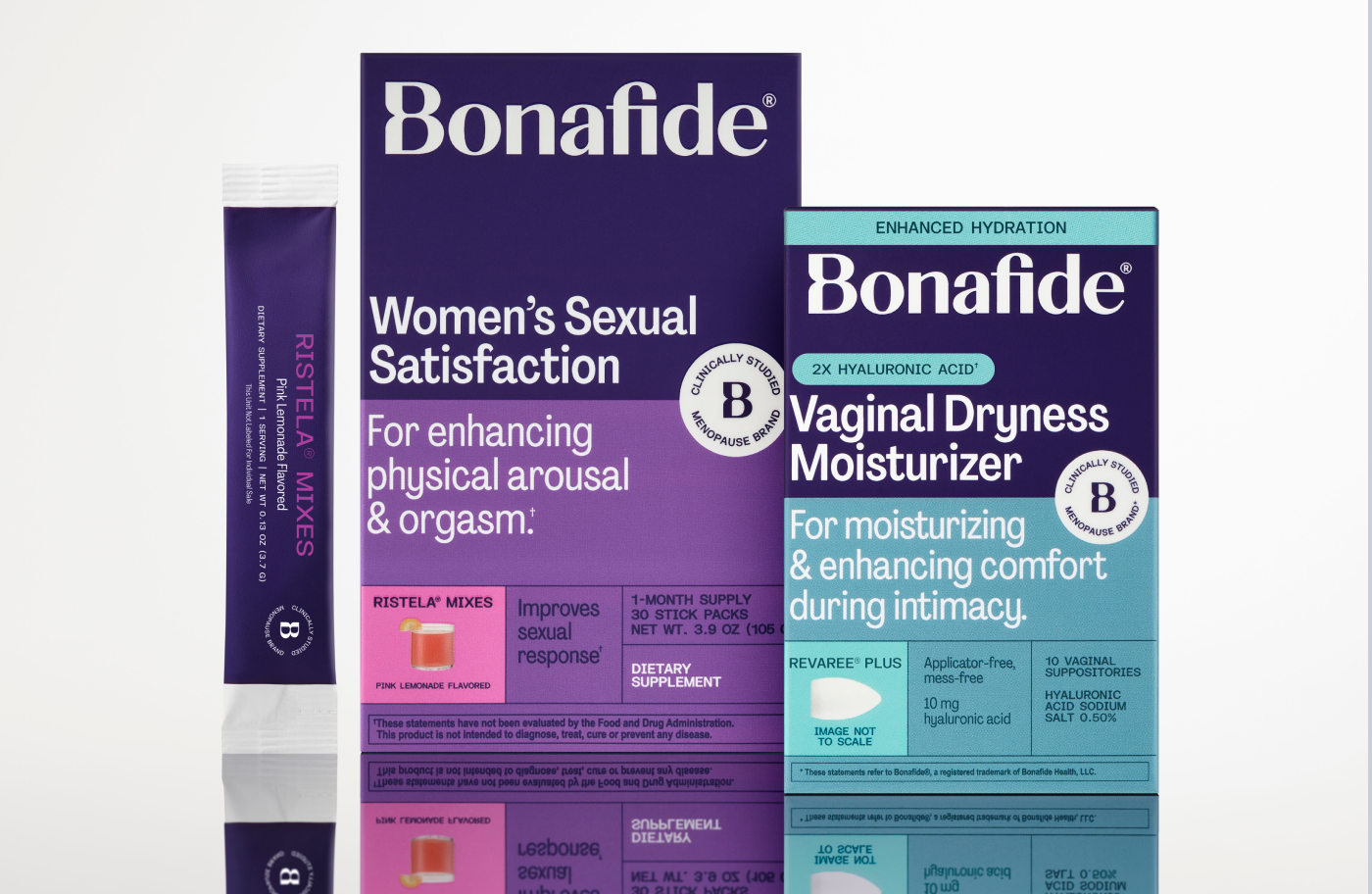In recent years, women’s sexual health has gained a much bigger presence among media nationwide. Despite the fact that men’s sexual health and function has had media attention and experienced product innovation for years, women’s sexual health has not shared the same stage. Research even suggests that issues related to sexual function and satisfaction are quite common in women, however, it’s still a topic that many may not be comfortable discussing, even with their healthcare providers.
At Bonafide, we’re working on changing that. Keep reading to learn more about what can impact sexual arousal and orgasm in women and what you can do to reignite that spark.
What Affects Sexual Arousal During Menopause?
Problems with sexual function and satisfaction can occur in women of all ages but may become more prevalent for women traversing perimenopause or menopause. Because sexual response involves a complex interaction of factors, any disruption can negatively affect physical arousal, satisfaction, and more.
Additionally, both physical and psychological factors contribute to overall sexual wellness and can have an impact on sexual function and satisfaction. Physical symptoms that may impact sexual satisfaction in women include the side effects of certain medications, medical conditions, and, as we mentioned above, menopause. Menopause can specifically contribute to a decline in sexual response due to things like: inhibited desire, inability to become aroused, difficulty with orgasm, vaginal dryness and painful intercourse.
Psychological factors that may have an impact include stress and anxiety, concern about sexual performance, and marital or relationship problems.
Evaluating your attitude regarding sex and other factors that can contribute to these symptoms will also help your healthcare provider better understand the underlying causes of your symptoms and enable them to make the appropriate treatment recommendations.
French Maritime Pine Bark: An Ingredient Found in Naturally Derived Supplements That Support Women’s Sexual Health
Unlike sexual health products for men, there haven’t been as many effective products designed to help women increase their overall sexual satisfaction and physical arousal. What’s more, there hasn’t been as much research dedicated to prescription-free or supplemental alternatives that are designed to help boost sexual arousal and orgasm in women.
While limited, there’s some clinical research around a few products and ingredients that can help to support sexual arousal and satisfaction in women during perimenopause and menopause. One of which is Ristela®, by Bonafide®.
Ristela is designed to increase sexual satisfaction in women with daily use, and includes ingredients designed and clinically tested to improve healthy blood flow, specifically to the genitals.* The ingredients in Ristela are clinically tested to be safe and have been used by women in Europe for over 20 years.
Pine Bark Extract Benefits
The exclusive plant-based blend in Ristela combines the powerful benefits of French maritime pine bark extract, antioxidants, and naturally occurring amino acids. Ristela’s ingredients are known to promote healthy blood flow and circulation, which are important factors that support female sexual arousal and orgasm.*
The specific French maritime pine bark extract used in Ristela, is prepared from the bark of pine trees grown exclusively in southwestern France using a standardized process. The multilayered outer bark is harvested from 30-year-old trees. Any cut trees are then replaced by seedlings, so that the process can be completely sustainable.
While there are many benefits of pine bark extract when taken on its own, study data has shown that when strategically combining maritime pine bark with other naturally derived ingredients it produced even better results. This is why you'll find supportive ingredients like rose hip extract, and the amino acids L-Arginine and L-Citrulline in Ristela, which work together with the French maritime pine bark extract to safely increase blood flow to the genitals to enhance physical arousal and orgasm in women.*
Clinical Data Shows that Ristela Supports Sexual Arousal and Orgasm
What does pine bark extract do, specifically French maritime pine bark extract? As mentioned, while French maritime pine bark extract is the key ingredient in Ristela, the supporting ingredients – rose hip extract, L-Arginine and L-Citrulline – all work together to provide an increase in female orgasm and physical arousal with daily use.*
These ingredients have been studied across numerous clinical trials, encompassing either premenopausal, perimenopausal, or postmenopausal women. Across three separate clinical studies, Ristela demonstrated statistically significant improvements in women’s FSFI (Female Sexual Function Index) scores in either premenopausal, perimenopausal, or postmenopausal women.
The FSFI is a validated questionnaire with multidimensional scales for the assessment of female sexual function. It represents the standard tool for the assessment of women’s sexual function. Going one step further, across all three trials Ristela demonstrated significant improvements in each domain of the FSFI score, including orgasm, physical arousal, and sexual satisfaction.1-3
In clinical trials, women saw significant improvements with Ristela at month 1, with best results by month 2 and beyond. In a double-blind, placebo-controlled clinical trial, Ristela demonstrated significant improvements in orgasm, physical arousal, and overall satisfaction.1-3
Improve Sexual Arousal and Orgasm
Sexual arousal and satisfaction are complex. Issues that contribute to a decline in sexual function and satisfaction in women are complex and far-reaching. If you’re experiencing changes to your sexual arousal or orgasm, specifically during perimenopause or menopause, don’t hesitate to speak with your healthcare provider to determine the best treatment for you.
Resources
- Bottari A, et al. Minerva Genecol. 2013;65:435-444. 8-week, active-controlled lifestyle study in 100 premenopausal women ages 37-45.
- Stanislavov R and Rohdewald P. J Women's Health Care. 2014;3:1-6. 8-week, randomized, double-blind, placebo-controlled study conducted in 80 women ages 40-50.
- Bottari A, et al. Panminervea Med.2013;65:435-444. 8-week, randomized, single-blind, placebo-controlled study in 83 postmenopausal women ages 45-55.











Comments
Post commentI have been using Ristela for almost a hear now and notice a definite improvement!